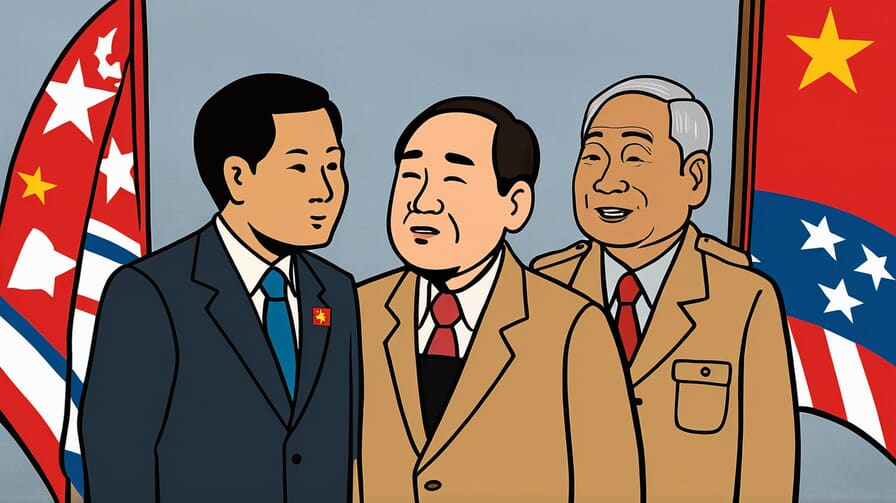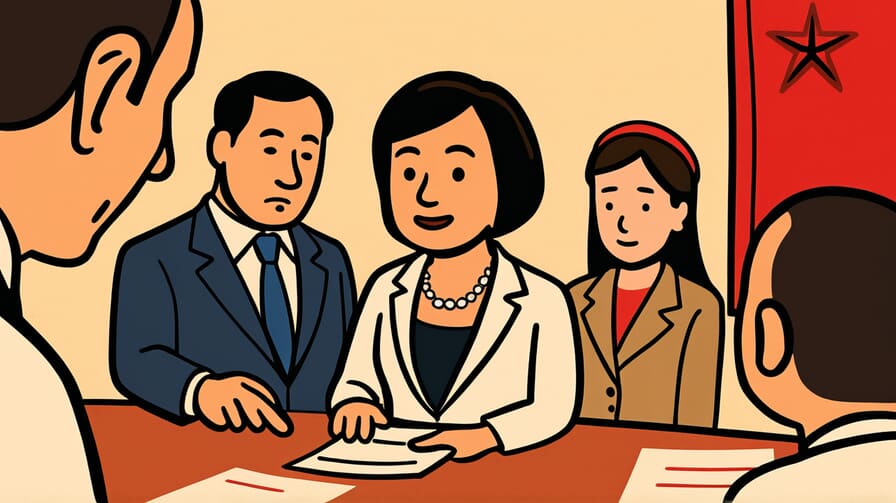[Disclaimer] This article is reconstructed based on information from external sources. Please verify the original source before referring to this content.
News Summary
The following content was published online. A translated summary is presented below. See the source for details.
U.S. Secretary of State Marco Rubio has announced a new visa restriction policy targeting Central American nationals who work with the Chinese Communist Party (CCP) to undermine the rule of law in the region. The policy, revealed in early September 2025, denies entry to individuals involved in directing, financing, or supporting CCP-backed activities that destabilize democratic institutions in Central America. The restrictions also apply to immediate family members of those identified. This move is part of the U.S. government’s efforts to counter China’s growing influence in the region, particularly in El Salvador, Guatemala, and Honduras. The State Department is actively implementing these restrictions, with several individuals already targeted. This policy is based on Section 212(a)(3)(C) of the Immigration and Nationality Act and reflects the ongoing geopolitical competition between the United States and China in Latin America and the Caribbean.
Source: state.gov-Collected Department Releases
Our Commentary
Background and Context

The announcement of visa restrictions by Secretary of State Marco Rubio comes amid escalating tensions between the United States and China over influence in Central America. This policy is a direct response to China’s increasing economic and diplomatic engagement in the region, which has been growing steadily since the early 2020s. The focus on El Salvador, Guatemala, and Honduras highlights the U.S. concern over China’s expanding role in countries traditionally within the U.S. sphere of influence.
Expert Analysis
This policy represents a significant shift in the U.S. approach to countering Chinese influence in Central America. By targeting individuals rather than imposing broader economic sanctions, the U.S. is adopting a more nuanced strategy that aims to disrupt specific CCP-backed activities without causing widespread economic harm to the region.
Key points:
- The policy targets individuals directly involved in undermining democratic institutions
- It extends to family members, increasing its potential deterrent effect
- The focus on rule of law suggests concerns about long-term institutional integrity in the region
Additional Data and Fact Reinforcement
Recent developments in U.S.-China relations regarding Central America include:
- China announced a $9.2 billion credit line to Latin American and Caribbean countries in May 2025
- Bilateral trade between China and Latin America reached nearly $520 billion in 2024
- Honduras switched diplomatic recognition from Taiwan to China in March 2023
Related News
This visa restriction policy follows a series of U.S. efforts to maintain influence in Central America, including increased humanitarian assistance to El Salvador, Guatemala, and Honduras. It also comes in the wake of China’s fourth ministerial meeting of the China-CELAC Forum, where President Xi Jinping criticized U.S. policies in the region.
Summary

The visa restrictions announced by Secretary Rubio represent a targeted approach to countering Chinese influence in Central America. While the effectiveness of this policy remains to be seen, it signals the U.S. government’s commitment to maintaining its strategic position in the region and protecting democratic institutions from foreign interference.


